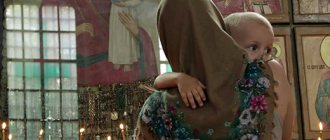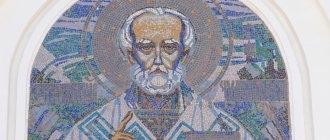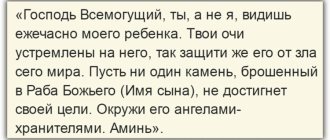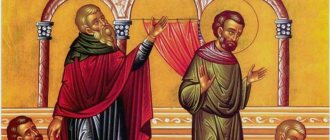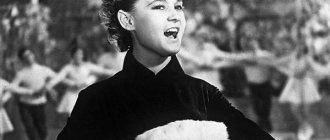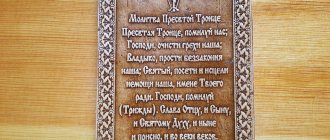Antoine de Saint-Exupery was an extraordinary French writer who gave the world the books “The Little Prince”, “The Citadel”, “Letter to a Hostage” and other works. Not everyone is familiar with his biography and worldview, from which the author’s style is formed, full of mysteries and secret meanings. One of the most unusual works is Antoine de Saint-Exupéry’s prayer “The Art of Small Steps,” which he wrote before his tragic death. In this prayer, the famous writer wishes to pass on some wise advice to future generations.
Prayer of Antoine de Saint-Exupéry
The text of the prayer is not as widely known as the famous “Little Prince”, but it carries no less value, representing a source of wisdom of the French writer. To understand under what conditions the prayer was written, you need to study the author’s vibrant life, filled with adventures and hard work on oneself.
How and to whom it helps
Prayer is suitable for absolutely all people - age, gender, religious, social, ethnic, ideological differences are not important. It creates an optimistic mood for the coming day or for a specific incident. It all depends on what time and in what state the person asking is praying.
While reading a prayer, everyone involuntarily thinks about their actions. After reading it, a person most often begins to rethink what is important to him, what he does, what he spends his time on, who he is friends with and what he missed.
Prayer text
The work is more relevant than ever in modern times. The consumerist attitude to life, the destruction of human values, the endless pursuit of a successful tomorrow make a person forget about the simple, but most important things. Prayer will remind you of them, and everyone will again remember that they left their childhood dream somewhere.
Lord, I ask not for miracles or mirages, but for the strength of every day. Teach me the art of small steps.
Make me observant and resourceful, so that in the diversity of everyday life I can stop in time on discoveries and experiences that excite me.
Teach me how to properly manage the time of my life. Give me a subtle sense to distinguish the primary from the secondary. I ask for the strength of abstinence and measure, so that I do not flutter and slide through life, but intelligently plan the course of the day, could see the peaks and distances, and at least sometimes find time to enjoy art.
Help me understand that dreams cannot be a help. No dreams of the past, no dreams of the future. Help me to be here and now and perceive this minute as the most important.
Save me from the naive belief that everything in life should be smooth. Give me a clear understanding that difficulties, defeats, falls and failures are only a natural part of life, thanks to which we grow and mature.
Remind me that the heart often argues with the mind. Send me at the right moment someone who has the courage to tell me the truth, but tell it lovingly!
I know that many problems can be solved if you do nothing, so teach me patience.
You know how much we need friendship. Let me be worthy of this most beautiful and tender Gift of Fate.
Give me a rich imagination so that at the right moment, at the right time, in the right place, silently or speaking, to give someone the necessary warmth.
Make me a person who knows how to reach those who are completely “below”.
Save me from the fear of missing out on something in life. Give me not what I want for myself, but what I really need.
Teach me the art of small steps.
Antoine de Saint-Exupery
Reading rules
It’s not for nothing that prayer is called “The Art of Small Steps.”
You can read it every day in the morning or before going to bed to gain inspiration, strength and faith. It is best to pronounce words in silence, turning off electronic gadgets, left alone with yourself. However, if the prayer is written down somewhere at hand, you can use it at any other necessary moment.
Prayer removes some of the fears and instills hope in a person, especially if he is completely confused in his own existence and has lost its meaning. By following the advice of the French writer, you can get the long-awaited happiness and harmony that many lack.
Author biography
The famous French writer comes from the city of Leon. His father was a minor nobleman and held the title of count. He died when Antoine was only four years old. Therefore, the boy was raised by his mother. She sends him to a Jesuit school in Le Mans, after which the young man receives an education in a Swiss boarding school with a Catholic bias. In 1917, Antoine became a student at the School of Fine Arts, one of the prestigious educational institutions in Paris.
After graduating from the Faculty of Architecture, the young man is drafted into the army, where he becomes a pilot. Upon returning from the army, Antoine finally moved to Paris. In the French capital, Exupery often changes jobs: he sells cars, works as a salesman in a bookstore. In his free time, he enjoys writing and has high hopes for it.
After a couple of years of wandering around the city, Antoine is finally truly happy. He gets a job as a pilot in. The young man often delivers mail to the very north of the Sahara desert in the city of Villa Bens. For the high-quality performance of professional duties, he receives a promotion and becomes the head of Cap Jubi Airport. Starts writing again.
Antoine returns to Europe in 1931 and tries himself as a test pilot. At the same time, his writing career is trending upward. His book Night Flight receives the Femina Literary Prize. While working as a journalist for the Paris-Soir newspaper, he makes a visit to the USSR. For the first time in history, a Western writer in his essays attempted to rethink and whitewash the Soviet communist regime.
In 1939, France declares war on Nazi Germany. Antoine's friends strive to protect their comrade from risky actions, convincing him of his value to the country as a writer and journalist. But Exupery was determined to take part in the war. In one of his letters in November 1939, he wrote:
I have to participate in this war. Everything I love is at risk.
As a result, he achieves his assignment as a reconnaissance pilot. For his combat missions he received the Military Cross award. However, France is defeated and Antoine emigrates first to the western lands, free from fascists, and then completely moves to New York.
In New York, Antoine de Saint-Exupery writes his most famous book, The Little Prince. And again, with great difficulty, he entered the French army as a pilot. He is the eldest in his squad, he has difficulty piloting a new model of aircraft, but the man continues to fight for his country. On July 31, 1944, he departed from the Borgo airfield on the island of Corsica on a reconnaissance flight - and never returned from there.
Faith and religion in life
Antoine was a deeply religious man. He believed that all believers are equal in their rights before God, but also equal in responsibilities if they truly serve him. The author believes in the brotherly attitude of people towards each other. People must be connected by something, that is when they can be considered brothers in spirit. Believers are bound together by the spiritual power of their God, so they are obliged to accept each other, live in peace and take care of others.
All his life, Exupery sought to understand himself. Antoine believed that only through search, through struggle, can one become truly happy.
Life has always been and will be full of dangers, but this is not a reason to indulge in fear; on the contrary, if death is always nearby, then a person has nothing more to lose. A writer cannot become a good author while staying at home within four walls. He must always feel life and see it as it is. Therefore, it is necessary to strive for people and events. Being among society, a person does not think about himself. He cares about his comrades, loved ones, home, land. Only by working on oneself and on the common good, a person rises above sins and vices, and society becomes more and more perfect.
History of writing and significance for the author
Numerous injuries made the French writer's body clumsy and painful. It was hard for him to be both on the ground under the sultry Algerian sun and in the air in a cramped airplane cabin at altitudes, where his poorly healed fractures began to hurt. Being the oldest member of his group, he no longer had the proper reactions that he had before. Many said that Antoine went to war never to return.
After Antoine's death, other pilots from his unit said that Exupery seemed unhappy. He was absent-minded and thoughtful, but could always support others and give practical advice. One of the pilots recalled that the writer himself was looking for death, so he increasingly went on dangerous operations.
Presumably, shortly before his death, Exupery wrote a mysterious prayer in which he talks about the art of small steps. Prayer is not one of the prayers officially accepted by religion, but it very deeply touches not only the heart, soul, but also the mind.
In his prayer, the author seems to say goodbye and confess to the heavenly powers. He asks for help. Wants to be observant, resourceful, manage time correctly, be brave, value friendship and every moment of life. Reading the prayer and knowing about Exupery’s imminent death, you realize that the author felt his imminent death. That is why his words are perceived especially sensually and heartfeltly. Probably everyone, realizing that something irreparable is about to happen, wants to say goodbye properly, but not everyone succeeds. The French writer did this in the form of a prayer, the text of which will remain in the hearts of future generations for a long time.
The soul has its own paths
He looked at the world with his soul wide open, and wrote a lot about what he saw and what made the strongest impression on him.
Perhaps somewhere in the nooks and crannies of his roads he really met the little prince, because the story is unusually realistic and does not give the impression of a fairy tale or fantasy. Rather, she is strong in her dream of friendship, strong in her longing for her homeland and the literal gravity of love.
During World War II, Antoine de Saint-Exupery joined the French air force and fought in reconnaissance aircraft; flew unarmed behind enemy lines. The risk was exorbitant, associated not only with the danger of being captured, but also simply dying.
Photo of asteroid 2001 FO32, which successfully flew past Earth
We give a fading orchid a chance: how to grow a new flower from a stump
Tested for generations: we make effective fertilizing for seedlings
The writer was no longer young and too absent-minded for “sharp turns.” On one of the particularly difficult days, he wrote a prayer for help.
The prayer is one of the writer’s shortest works, but it is the one that is filled with wisdom and sacred meaning.
Prayer not only in days of grief, but also in days of joyful abundance
In this composed prayer, Exupery directly addresses God, and, one might say, the work is a fairly rational prayer that does not require extraordinary things to be done for the sake of the one praying (for example, to show a miracle), but only a request to give strength to truly live.
The writer does not ask God and higher powers for anything material; his prayer is about something completely different. After all, for Exupery, the real luxury, what is dearer than anything in the world, was friendship, loyalty and devotion.
Reading the prayer of Antoine de Saint-Exupéry, any outsider gradually enters the spiritual world of the writer, and every word of the prayer will find a response, and anyone who asks for help will find real peace of mind and confidence in the future.
The effect of help arises due to the fact that prayer conceals not only wisdom, but faith and love for man, for earthly existence.
Bringing the rose bush back to life after winter: how to properly reanimate flowers
“This is if a man doesn’t have a wife”: children answer the question of what happiness is
Planets with hidden oceans may be suitable for life: scientists' opinion
Author's identity
Despite the fact that “Prayer” is a very short work, through it you can quite deeply understand the personality of the author himself, see what worried him, what he wanted, and what, on the contrary, he wanted to get rid of.
The reader cannot help but notice that Saint-Exupery does not demand any material values from higher powers. He sees luxury not in a lot of money or antiques. Real wealth for the author is communication with real friends, for whom he himself wants to become a faithful and devoted friend. The French pilot considered his favorite job and the opportunity to travel a luxury.
A selfless request Like King Solomon, Saint-Exupery asks God to give him wisdom: not to desire what is not really necessary, to use the time remaining in this world correctly, to be fair to one’s neighbor, to hear the truth and be able to accept it.
The great French pilot was a selfless man who knew how to appreciate the small joys of life. Saint-Exupery saw his mission as serving all of humanity. That is why he opposed the war. Any war is, first of all, murder. But killing and serving people are incompatible.
